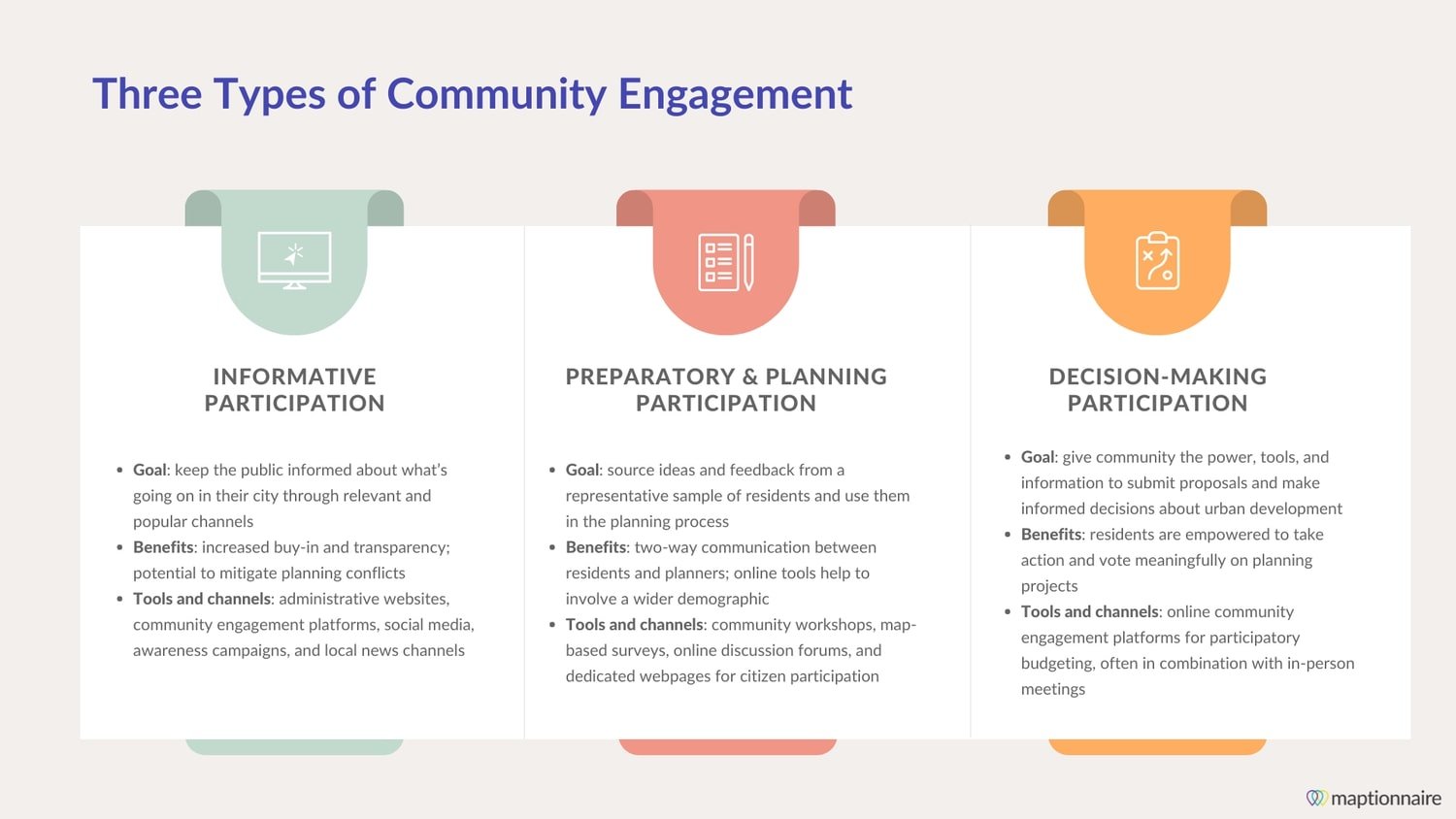ChatGPT for Urban Planning: Community Engagement and Project Development

Community Engagement

- Public Consultations: ChatGPT can assist in organizing and facilitating public consultations, gathering feedback from residents and stakeholders on proposed urban planning projects.
- Stakeholder Workshops: It can facilitate workshops with community groups, businesses, and government agencies to gather diverse perspectives and develop consensus on project goals.
- Online Forums and Surveys: ChatGPT can create online forums and surveys to collect public input, providing a convenient and inclusive platform for community engagement.
Project Development

- Planning Scenario Analysis: ChatGPT can generate alternative planning scenarios based on community input and objective data, allowing planners to explore various options and make informed decisions.
- Environmental Impact Assessment: It can analyze the potential environmental impacts of proposed projects, providing insights to guide responsible development and minimize negative consequences.
- Traffic and Transportation Planning: ChatGPT can simulate traffic patterns, identify congestion points, and propose solutions to improve mobility and reduce reliance on private vehicles.
- Public Infrastructure Planning: It can assist in planning for essential public infrastructure, such as parks, schools, and healthcare facilities, ensuring accessibility and community well-being.
- Grant and Funding Proposals: ChatGPT can generate compelling grant and funding proposals that clearly articulate project benefits, supporting fundraising efforts and securing resources for urban planning initiatives.
Benefits of Using ChatGPT in Urban Planning
- Enhanced Community Participation: ChatGPT facilitates inclusive community engagement, ensuring that all voices are heard and considered in decision-making.
- Data-Driven Decisions: It provides data analysis and insights to support evidence-based planning, fostering transparency and accountability.
- Streamlined Communication: ChatGPT simplifies communication between planners, stakeholders, and the public, creating a collaborative environment for project development and implementation.
- Reduced Time and Costs: By automating certain tasks, ChatGPT saves time and resources, allowing planners to focus on higher-level decision-making and project delivery.
- Improved Project Outcomes: The use of ChatGPT enhances community involvement, data analysis, and decision-making processes, leading to more sustainable, equitable, and resilient urban environments.ChatGPT for Urban Planning: Community Engagement and Project Development
Executive Summary
Advancements in artificial intelligence (AI) are rapidly transforming the field of urban planning. ChatGPT, a powerful AI language model, has emerged as a game-changing tool for planners, offering unprecedented capabilities for stakeholder engagement and project development. This article explores the transformative potential of ChatGPT in urban planning, highlighting its key functions and applications, and providing practical insights for leveraging this cutting-edge technology.
Introduction
Urban planning plays a crucial role in shaping livable and sustainable cities. It involves a complex process of engaging diverse stakeholders, analyzing data, and designing plans that balance economic growth, environmental protection, and social equity. ChatGPT has the potential to revolutionize this process by providing planners with new tools for community engagement, scenario analysis, and collaborative decision-making.
FAQs
- What is ChatGPT? ChatGPT is a large language model (LLM) developed by OpenAI, capable of generating human-like text, answering questions, and engaging in conversations.
- How is ChatGPT used in urban planning? ChatGPT can be used for community engagement, project planning, data analysis, and urban design.
- What are the benefits of using ChatGPT in urban planning? ChatGPT can enhance community engagement, improve project outcomes, and optimize urban planning processes.
Subtopics
Community Engagement
ChatGPT empowers planners to connect with communities in innovative ways. Key functions include:
- Facilitating online consultations: Gathering feedback, conducting surveys, and hosting virtual town halls.
- Analyzing public comments: Identifying themes, sentiment, and areas of concern within community input.
- Personalizing communication: Tailoring messages to specific stakeholder groups based on their interests and feedback.
Project Planning
ChatGPT assists planners in developing robust and inclusive project plans. Key functions include:
- Generating project proposals: Outlining project scope, goals, and implementation strategies.
- Evaluating project alternatives: Assessing the feasibility and potential impacts of different project options.
- Drafting planning documents: Creating comprehensive plans, zoning regulations, and environmental impact assessments.
Data Analysis
ChatGPT provides advanced capabilities for data analysis and visualization within urban planning. Key functions include:
- Analyzing demographic data: Identifying population trends, socioeconomic profiles, and housing needs.
- Visualizing geospatial data: Mapping and analyzing land use patterns, transportation infrastructure, and environmental conditions.
- Predicting urban growth: Forecasting future population and land use trends using statistical models.
Scenario Planning
ChatGPT allows planners to explore different urban development scenarios and their potential consequences. Key functions include:
- Simulating future conditions: Modeling the impacts of population growth, economic development, and climate change on urban systems.
- Evaluating policy options: Assessing the effectiveness of different urban policies and interventions.
- Visualizing alternative scenarios: Presenting results in accessible and engaging visualizations, facilitating stakeholder understanding.
Collaborative Decision-Making
ChatGPT can facilitate collaborative decision-making processes among planners, stakeholders, and the public. Key functions include:
- Summarizing meeting notes: Capturing key points and shared decisions during stakeholder meetings.
- Drafting consensus statements: Generating agreements and joint statements reflecting the collective input of stakeholders.
- Facilitating online forums: Providing a platform for ongoing dialogue and knowledge sharing among project participants.
Conclusion
ChatGPT represents a transformative force in urban planning, offering unprecedented tools for stakeholder engagement, project development, and collaborative decision-making. By leveraging ChatGPT’s advanced capabilities, planners can create more inclusive, equitable, and sustainable urban environments. As AI technology continues to evolve, ChatGPT has the potential to further enhance urban planning practices, making cities more livable, vibrant, and resilient.
Keyword Tags
- ChatGPT
- Urban planning
- Community engagement
- Project planning
- Artificial intelligence
